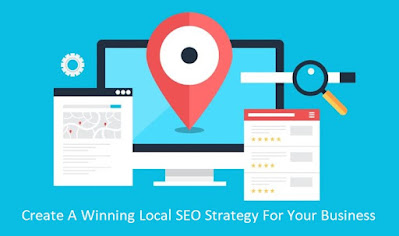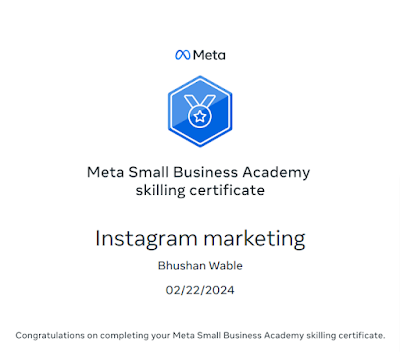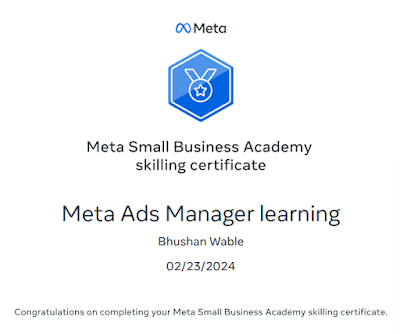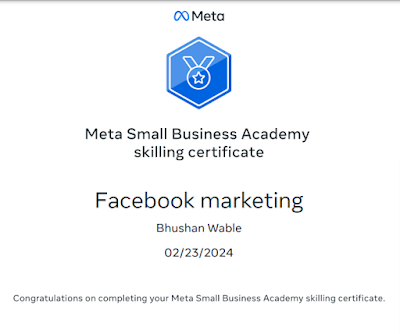How To Create A Winning Local SEO Strategy For Your Business?
Local SEO is an important part of any SEO strategy for local businesses. Optimizing your local SEO means more website traffic, leads, and conversions since the strategy is more relevant to your base of local customers. Local SEO enhances your online visibility.
If you have a storefront or service area, local SEO will help
your audience find you when they search online. With 60% of consumers
searching for local businesses online, local SEO is an essential marketing tool
for businesses looking to attract potential customers.
Whether you have a physical location
or an online business that serves a specific location, you need a strategy for
targeting localized searches and users in your area. This is how you rank
higher in Google search, outshine your competitors, and attract even more
customers.
Local SEO
Strategies relies on marketing your brand,
products, and services to local leads and customers.
Does Your Business Need A Local SEO Strategy?
Most of the time, people are looking for products near them, rather than
national or international options that may be harder to get. This is
particularly prominent in service industries. Only businesses that serve a specific
geographic location need to rank in local search for the key terms potential
customers are searching for in their area.
Types Of Businesses That Need Local SEO
• Bars and restaurants. • Law offices. • Local contractors. • Plumbers. • Real estate companies. • Medical service providers. • Stores and boutiques. • Hair salons. • Government agencies. • Local non-profit organizations. • Coffee shops. • Local consultants. • Manufacturers. • Local marketing agencies. • Museums. • Auto dealers. • Photographers. • Colleges and universities. • Casinos. • Any other business that wants to be found!
Creating Your Local SEO Strategy
Once
you’ve determined that your website needs local SEO, it’s time to create a
strategy for increasing your local rankings and website traffic.
Now local SEO has a tendency to be a little confusing and seems to be a
bit of a black hole to some folks, however, we have broken down the top
11 ways to optimize your website for local SEO for your browsing
pleasure!
1. Your Services And Products
Determine
what terms you want your business to rank for. This will be based primarily on
the services and/or products you offer
Your
goal here is to take stock of what your business offers and determine some key
terms customers might be searching for to find a business like yours. Make a
list of these terms to establish a starting off point for your keyword
research. Later, you will use local SEO tools to search for these terms,
identify geo-specific keywords, assess search volume, and ultimately decide
which keywords to target on your website.
2.Audit Your Website
Before
jumping into optimizing your site, you need to determine what (if anything) is
broken and whether your site has a solid foundation.
An
SEO audit can help you identify any technical or on-page SEO issues that could
hinder the success of your website. These issues should be addressed before you
worry about creating new SEO content, building backlinks, etc.
Or
you might decide to hire an SEO specialist who can thoroughly
audit your site and come back with a list of items that need to be addressed.
3. Conduct
Competitor Keyword Research
One of the goals of local SEO is to not only rank in local search
but to outrank your local competitors. In order to do this, you need to know
what keywords they are ranking for and how.
Simply do a search of a competitor’s domain and your chosen SEO
tool will generate a list of keywords they are ranking for organically. Then,
you can see search volume and competition metrics to determine whether these
keywords are a good fit for your own site.
Remember, you only want to target keywords that fit the service or
products you offer, what your business is about as a whole, what your potential
customers are searching for, and the location(s) you are targeting. You want to
generate localized, relevant traffic to your site.
4. Identify
Geo-Specific Keywords
In
step 1, you identified some terms that summarize what your business offers. In
step 2, you researched your competitors to see what keywords they were
targeting. Combining these two lists, you can use SEO tools to research these
terms to examine search volume and competition level. You can also look for
geo-specific keywords by adding your location to the keywords you are searching
for.
Continue
conducting keyword searches until you have an exhaustive list of as many
relevant, localized keywords as you can find. Be sure to search for different
variations of the services or products you offer and the different areas you
serve.
5. Implement On-Page SEO
On-page
SEO is all about optimizing your website for the localized keywords you
identified.
Here, you will be following on-page SEO best practices to ensure your site is optimized for local search.
This on-page optimization process involves:
- Keyword
Mapping
- Title
and Meta Description Optimization
- Content
Creation
- Internal
Linking
- Image
Optimization
- URL
Structure
6. Create
Localized Landing Pages
Localized
landing pages are webpages created specifically for ranking in organic local
search. These pages should be optimized with the geo-specific keywords you’ve
identified and include informative content that draws in your target audience.
Best
practices for creating landing pages include having optimized H1, H2, and H3
headings, writing keyword-optimized body content, including internal links,
adding images, and optimizing for mobile search. When done correctly, you can
also run paid ads to these landing pages to not only drive organic traffic but
paid traffic, as well. Just be sure to include compelling calls-to-action to
entice users to contact you.
7. Optimize
Your Google Business Profile Listing
Google
Business Profile is a free platform all local businesses can use to drive more
traffic, generate customer reviews, and more. It’s essential for your business
to have a fully optimized listing to increase your chances of ranking in
search.
Simply
create an account and claim your business, or create a new listing. Then, you
can include your business address, phone number, website URL, images, hours,
and more so users can learn more about you
8.
Submit Business Info To Directory Listings
Beyond
GBP, there are other online directories where you can submit your business
information. The most reputable directories include Yelp, Yellow Pages, Bing
Places, and BBB, but there are countless others online.
Your
goal here should be to submit your information to authoritative and (ideally)
localized directories in order to drive traffic, earn links, and improve your
local SEO. Here, it’s important that your business name, address, phone number,
and website URL (NAPW) are consistent across all directories.
If
possible, try to find industry-related directories you can add your business
to. At the same time, avoid spammy sites or paying for directory listings just
to earn a link; not all directories are created equal.
9. Establish a
Localized Link Building Strategy
Link
building is an important part of SEO in general, but localized link building
can look a bit different from link building for other sites. Here, the physical
location of the sites linking to your site is also important
Try
to attract links from other businesses in your geographic area. Also, create
localized content to drive local links, requesting localized anchor text to
generate the best results.
A few ways to earn backlinks include:
•
Directory submissions.
•
Outreach.
•
Guest posting.
•
Creating content assets
10. Generate Positive
Customer Reviews
The
number of positive reviews your website has on GBP is a significant ranking
factor for local SEO. Therefore, one of your top goals as a local business
owner is to generate as many positive reviews as possible – ideally, across all
your directory platforms
Conducting
client exit interviews is a great way to ask clients for reviews after your
engagement. You can also send follow up emails to customers asking them to
review you on GBP, Yelp, Facebook, etc.
11. Optimize for
Voice Search
Voice search ;will grow rapidly in the coming years. Therefore, in local SEO, it’s vital to optimize for how people ask questions when they speak into devices, as opposed to how they type out their searches.
Essentially,
your customers use more long-tail keywords when doing voice searches compared with regular search. Because of
this, you’ll also have to adjust the SEO of your content to fit the more conversational tone
of someone speaking.
Local SEO Tools
Now that we've
covered how to optimize your business for local SEO, let's explore some useful
tools you can leverage to improve your ranking in the areas where it matters
most.
1. Whitespark Local Citation Finder
A local citation is any online mention
of the name, address, and phone number for a local business. Citations matter
because they help surface local businesses in online search, and when local
businesses actively manage their citations to ensure data accuracy, it promotes
trust of these online listings.
2. Moz Local
Moz Local will ensure your business listing has been verified on Google and Facebook, and distribute your listing across the search ecosystem. Additionally, Moz Local will collaborate with data aggregators to help push listings, ensuring your business gains visibility.
3. Ahrefs
Ahrefs also offers
competitor analysis, keyword research, and insight into the anchor text other
websites use when backlinking to your site.
4. BrightLocal
BrightLocal
is a comprehensive SEO tool suite specifically built for local business
marketing needs. The tool can help you generate and monitor reviews on local
sites, understand your local search performance, and analyze nearby
competitors.




Comments
Post a Comment